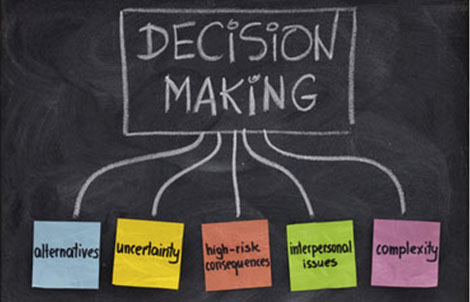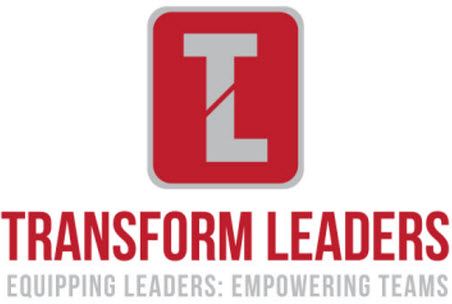Part 1

I had been going out with this girl for 6 months, I really wasn’t sure whether I wanted to keep going out with her anymore. I was 22, still living at home. I made a time to talk with my dad about the decision I felt was looming. We talked through all the pro’s and con’s. It seemed quite clear, the relationship was going nowhere, I didn’t think she was the right one for me, it was time to break up. As I left that conversation my dad something quite wise, “Reflect on the conversation and see what comes up for you either emotionally or intellectuallyâ€. I didn’t really know what he was talking about, but I trusted his wisdom.
I left and went to play grade cricket. At the end of cricket I told my best friend, “Next time you see me I’ll be a single man.†The funniest thing happened on the drive over. As I was reflecting on my conversation with my dad what “came up for me†was how I had been quite unfair in my assessment of my girlfriend and all of the great qualities I forgot to mention to my dad.
Nonetheless, when I got to my girlfriend’s house, I told her about my misgivings and suggested we break up. Thankfully she didn’t just accept my thoughts unchallenged. We talked about my conversation with my dad, the various thoughts I had. We agreed that we wouldn’t break up; we would see how I felt in a month’s time. Twenty-three years of happy (mostly) marriage later, I’m so glad that my dad and my now wife, stretched my decision-making methodology. I could have made a very poor decision.
Decision-making is one of the most crucial skills that we need in life and in leadership. Poor decision-makers cost themselves and others in numerous ways. The costs can be emotional, opportunities, relational, or financial. For leaders being able to make wise decisions is critical to performance.
I find it amazing that for such a crucial part of our lives we don’t spend any time developing more skills in this area. In my experience most people believe they are great decision-makers, and don’t reflect on their decision-making style or methodology in order to improvement.
At the beginning of the year, we are going to explore over a couple of blog posts this crucial area.
Let’s explore this crucial topic. In order to be a great decision-making there are 5 keys we need to explore.
1. KNOW WHAT TYPE OF DECISION YOU ARE MAKING?

Four Types of Decisions
There are four major types of decisions that confront us regularly. It is helpful to break these down into specific categories because if you know what decision you are making you can go looking for the right type of data to support your process. It is also helpful so that you can engage with the right type of people to help you make the right decision.
Routine
Routine decisions are those when the problems and options are relatively well defined and common. Where established rules, routines, policies or procedural (written or unwritten) can be used to solve them. Most of these are not that important in the scheme of things. The people who are best at these types of decision invariably have a checklist they go through to make sure they haven’t missed anything.
Adaptive
Adaptive decisions are those when the problem and alternatives are somewhat unusual and only partially understood. It is where there are a number of givens but the solution that used to work isn’t working anymore. It might be software, a roster pattern, change in personnel, etc. The key ingredients is that you know what you want to achieve, you have put in place systems, people or resources but now you have to adapt to a changing environment which could be internal or external in nature. These decision can be strategic or tactical in nature depending on the scope and scale of the decision.
Directional
Directional decisions are made when the future is undefined. Directional decisions are not unusual because people are asking these types of questions, “Where are we going, what are we trying to achieve?†all the time. Directional decisions are aspirational in nature. They are also impact on our strategy. What job do I want to apply for? Do I want to start my own business?
Innovative
Innovative decisions are made when problems are unusual and unclear. We are unclear about the not only the how but often the what as well. Creativity is required. The current methodology, technology, wisdom can’t be adapted any longer because you have come to the end of it effectiveness.
At the beginning of the year, we are going to explore over a couple of blog posts this crucial area.
Let’s explore this crucial topic. In order to be a great decision-making there are 5 keys we need to explore.
2. ESCAPE THE PRESSURES OF THE STATUS QUO
In order to find the clarity you need to make important decisions, you must first escape the expectations society holds on your life. This is perhaps the most difficult step, but also the most valuable one.
According to research by Freakonomics authors Steven D. Levitt and Stephen J. Dubner, the majority of the decisions we make each day are based on a “herd mentality,” meaning we are always more likely to take the beaten path.
Look around the world and you’ll find overwhelming evidence of the herd mentality at work. It influences virtually every aspect of our behaviour — what we buy, where we eat, how we vote.
This means that we are making decisions using the methodology associated with Routine’ decisions when maybe it more appropriate to be using an adaptive or directional approach. For instance, we are having difficulties with an employee. The herd mentality is to get rid of them through a performance management process. What if you took an adaptive approach and asked some different questions. Maybe they are bored, maybe there need more opportunities, maybe their skills are not suited to the role they are in, but in another part of the business they would flourish.
This is exactly what happened to me when I was leading a not-for-profit organisation. My deputy was not performing, everyone around me, the Board, advisors, others in the organisation were telling me that I should sack him. I nearly did. However I decided that this could be an innovative decision rather than a routine decision. I went through the process of identifying what would really turn him on’. Created a new role and he has flourished ever since. Previously I had motivation, proactivity and time management issues. In his new role he exceeded all measurements.
One of my mentors says all the time:
“Zig when everyone else is zaggingâ€
This saying challenges me. We are herd animals, and want to fit in. What if you went with your gut, took a bold stand and did something different’.
There are so many examples of people choosing different paths and finding contentment, success, joy, and satisfaction.
There are two times in my life when I took decisions which were not part of the status quo. One was when I decided to do a second degree. I was young and newly married. The conventional wisdom (the pack) would say, “Work, save, buy a house as quick as you can.†My wife and I worked out that we were going to go broke 3 times in the next 4 months. That didn’t stop us, when believed it was the right path for us. It worked out brilliantly. Believe it or not a couple of people anonymously gave us thousands of dollars to cover our expenses. We didn’t go broke.
The second time was when I decided to leave secure, fulfilling full-time employment to stay my own consultancy business. I had a wife, 3 kids, a mortgage, no clients and no track record that said it would work. Conventional wisdom would say, build up slowly or simply play it safe. I knew I needed to give it a go. I’m so happy I didn’t play it safe.
Where do you need make a decision and move beyond the status quo?
EXERCISE:
As an exercise take 10 minutes to answer these questions:
- How skilful are you in making decisions?
- What type of decision do you find most difficult?
- What type of style is your default style?
- What process do you follow when making a decision?
I’d love to hear your feedback. Email me at Craig@transformleader.com.au or put a comment in the comments section.
